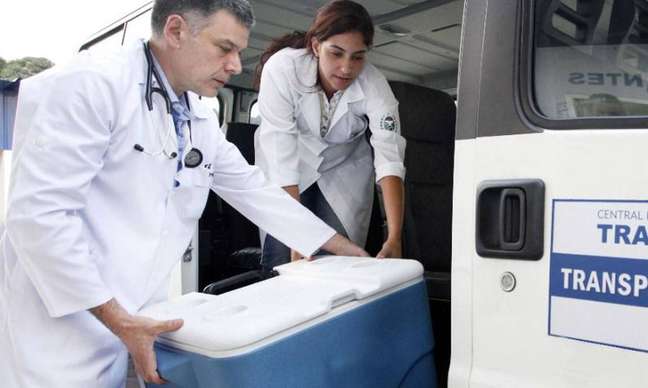Five drugs were also included in the ANS list; the agency says this is the 13th time the list has been updated in 2022
The National Supplementary Health Agency (ANS) announced on Friday 30 the incorporation of six new items in the list of mandatory coverage for health plans. The changes are expected to take effect on Monday 3, when they are posted on the Official Union agenda. The transplant of liver and five drugs for the treatment of colorectal cancer and nosocomial fungal infections.

Patients with liver disease and health insurance who are covered with organ availability from the single line of the Unified Health System (SUS) will have the transplant paid for under the plan. To ensure coverage of the intervention according to the situation of the patient in the queue and with the processes defined by the National Transplant System, adjustments have been made to Annex I of the List of Procedures and Events in Health.
The changes include clinical-outpatient follow-up, necessary hospitalization period and PCR testing for the detection of cytomegalovirus (CMV) and Epstein Barr virus (EBV), common viral infections in recently transplanted people who need to be monitored in these patients. .
Currently, around 37,000 patients are lining up for a transplant and 2,030 of them are awaiting a liver. Transplantation of this organ is second on the list, after kidney transplantation, which is a necessity for 33,990 Brazilians. According to the Ministry of Health, Brazil has the largest public organ, tissue and cell transplant program in the world, as approximately 88% of transplants in the country are funded by the SUS.
Health plans: see what changes with the law that overturns the list and forces coverage off the ANS list
Companies in the sector opposed the new rule
Fights hospital fungal infections
Four other drugs have been included in the ANS list, based on the law that determines the inclusion of technologies recommended by the National Commission for the Incorporation of Technologies in the Unified Health System (Conitec) and which have ordinances for incorporation into the SUS published by the Ministry of Health.
These are injectable antifungals that, according to the agency, allow patients to be dehospitalized in a context of increased severe deep mycosis resulting from the covid-19 pandemic.
The four items are Voriconazole, for patients with invasive aspergillosis; Liposomal amphotericin B, for the treatment of rhino-orbital-cerebral mucormycosis; Isavuconazole, for the treatment of patients with mucormycosis; and Anidulafungin, for the treatment of candidemia and other forms of invasive candidiasis.
The ANS reported that this is the 13th update of the list in 2022. Mandatory coverage of 12 procedures and 25 drugs has been incorporated so far, as well as expansions for patients with global developmental disorders, such as autism spectrum disorder. (ASD). The limits on counseling and sessions of psychology, speech therapy, occupational therapy and physiotherapy have been suspended, as long as they are medically indicated.
The new law enforcement agencies plan to cover unlisted procedures
In September, President Jair Bolsonaro approved the bill, approved by Congress in August, which obliges health plans to cover treatments that fall outside the list of mandatory procedures provided by the National Agency for Complementary Health (Agência Nacional de Saúde Supplementary).ANS), the so-called tax role.
The law was vindicated by patient organizations, which saw the closed list as a threat to their rights. The plan operators, on the other hand, are talking about risk to the financial balance of the business with the change and are considering taking legal action.
The standard specifies that the treatments or procedures prescribed by the doctor that are not included in the aforementioned list must have authorized coverage provided that: there is evidence of efficacy, in the light of the health sciences, based on scientific evidence and on a therapeutic plan; or there are recommendations from the National Commission for the Incorporation of Technologies into the Unified Health System (Conitec); o recommendation by at least one internationally renowned health technology assessment body, provided they are also approved for their citizens.
+The best content in your email for free. Choose your favorite Earth Newsletter. Click here!
Source: Terra
Benjamin Smith is a fashion journalist and author at Gossipify, known for his coverage of the latest fashion trends and industry insights. He writes about clothing, shoes, accessories, and runway shows, providing in-depth analysis and unique perspectives. He’s respected for his ability to spot emerging designers and trends, and for providing practical fashion advice to readers.







